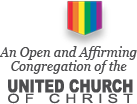Scott Peck began his famous book The Road Less Traveled with these three words: “Life is difficult.”
In our lives, we face personal challenges which overwhelm us. Our bodies don’t work the way they used to. We face a loss of income or a job. We enter a spiritual crisis where the beliefs and ideas we held dear don’t seem to work so well anymore. In our families , we deal with sticky challenges. Some struggle with their marriages. Sometimes a loved one does not measure up to our expectations. Occasionally we must manage a family disagreement that has festered for decades. In our nation and community, we may be discouraged by social and political problems which just seem intractable. People in our democratic institutions succumb to big money and political pressure. These struggles, of course, were not unknown in the ancient world. John the Baptist sought to pave the way to hope for many individuals amidst a troubled political landscape. Joseph, upon learning that Mary was pregnant, struggled for a time and thought of quietly dismissing her. And Jesus was, for all intents and purposes, born in a homeless shelter because there was no room in the inn.
Life is difficult. It is now and it has always been so. Peck, however, continues that the reality that life is difficult is “a great truth because once we truly see this truth, we transcend it. Once we truly know that life is difficult — once we truly understand and accept it — then life is no longer difficult. Because once it is accepted, the fact that life is difficult no longer matters.” In our world, we often encounter a cheery optimism which helps us forget our troubles. There is nothing wrong with that. Diversion and playfulness helps. However, during the holidays, we work overtime to be of good will and good cheer to the point of exhaustion. We think that we alone will bring in a new heaven and new earth. If you struggle, you may not want to have people minimize your feelings or struggles. In fact, if we had the courage to name what is challenging to us and acknowledge it, we would find a healing balm.
Christians know a joy which is better than a superficial optimism. We rely on the theological idea of hope. Hope is about trusting that God is part of our future, even if we cannot imagine it or see it. Our hope is also grounded in the present where we can, even in small ways, be an agent for hopefulness which shifts our perspective and can make a difference in the world. I will be exploring this theme of hope in three sermons during the Advent, Christmas and Epiphany season. The sermons will be as follows: December 8, “Hope for Self,” December 21, “Hope for our Families” and January 12, “Hope for Community and Nation.”
Come join us at First Congregational Church as we embrace the power of Christian hope. We find hope rooted in the birth of Christ in difficult circumstance. We also find hope in the promise of the resurrection that no trial or tribulation, not even death itself, can ever separate us from the love of God.
May the peace of Christ be with you,
Peter

